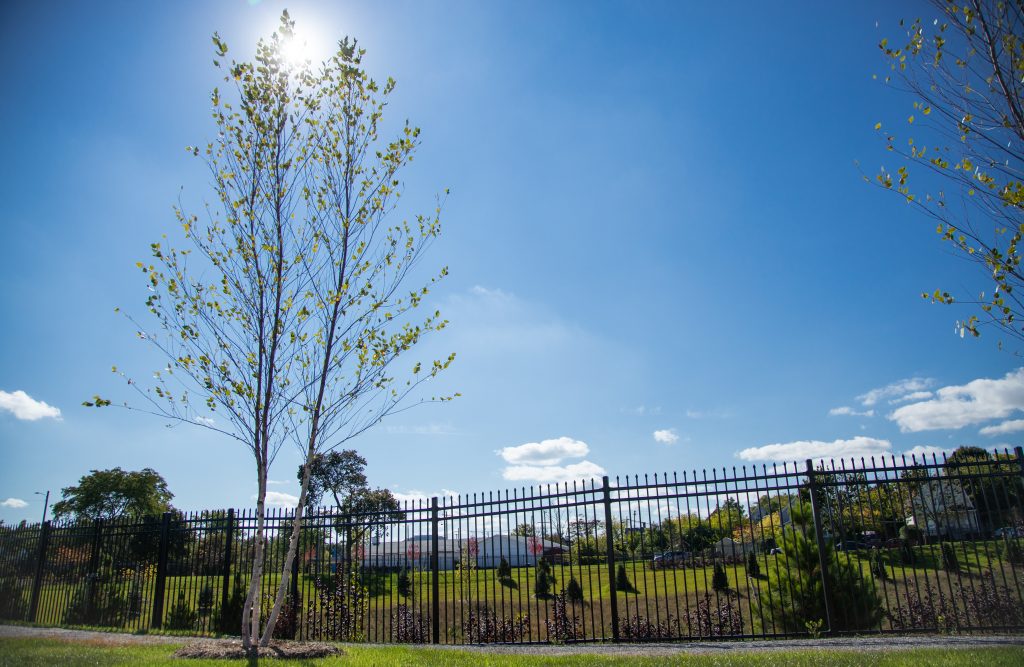Have you ever driven a tree-lined street, where the leaves and branches come together over the road, creating a tunnel of color in the fall and a canopy of green in the summer? This idyllic scenery is known as an urban tree canopy; it’s composed of layers of tree branches, leaves and stems that provide coverage of the ground when viewed from above.
Urban tree canopies provide numerous benefits to communities and to the environment. They reduce air pollution and summer peak temperatures, provide wildlife habitats and neighborhood beautification, which can increase property values, and improve social ties among neighbors and within the community.
However, studies throughout the United States show that most communities are losing tree canopy due to a range of threats, including insects, disease, natural disasters and development. The amount of tree canopy coverage is usually a reflection of a variety of factors, including intentional planning and investment.
For these reasons and more, we’re planting more than 1,100 news trees to help revive the tree canopy for the eastside of Detroit, where our new Mack Assembly Plant is being built, known to be well below the national average for urban canopy.
We’ve already planted 300 trees on our site, and early next year, we’ll begin working with residents to identify planting locations in the neighborhood together with the guidance from our longtime conservation partner Wildlife Habitat Council (WHC) to help drive long-term success.
According to data from the U.S. Forest Service, planting 1,100 native trees can result in more than $40,000 value per year in annual environmental and energy savings benefits for local residents. Creating these green buffers will also help enhance air quality, reduce energy usage and stormwater runoff, and improve the resale value and aesthetics of the neighborhood.

Thanks to a USDA Forest Service grant, WHC launched its newest initiative “Across Fence Lines: Connecting Corporate America to Communities Through Public-Private Forestry Programs,” which includes a focus on the best approaches to connect corporate conservation to local, state and national canopy and forestry goals.
“With the support of the U.S. Forest Service, we will be able to fill a significant resource gap to better connect the private sector to community forestry initiatives,” said WHC President Margaret O’Gorman. “This program also addresses the specific needs of high-potential communities where impactful industries are historically located.”
Beyond trees, we’re also in the midst of installing bioswales, planting various shrubs and perennials, and establishing an urban nature trail to demonstrate how positive actions can benefit the local environment.
WHC will also engage the Greening of Detroit, Davey Institute and Student Conservation Association as knowledge partners to help identify best practices and to consider the unique challenges and opportunities of working in urban-industrial lands.
Currently, 10 of our facilities across North America are WHC-certified and our Auburn Hills headquarters received the highest recognition, Certified Gold, for overall excellence in wildlife habitat and corporate conservation.
For more information on our environmental efforts in Detroit, visit fca4detroit.com.




